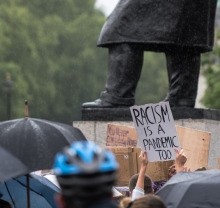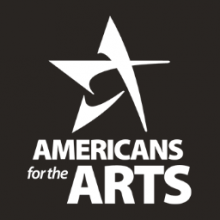Americans for the Arts is committed to a vision of the arts being recognized as integral to the lives of all people and essential to healthy, vibrant, and equitable communities across the nation. The work of the organization is guided by a board-approved strategic plan with the advice of our leadership councils, strategic partners, local and state arts agencies, and many other decision makers, all of whom have a stake in advancing the arts as core to transforming lives, communities, workplaces, and education systems. The urgency of this vision has never been more apparent than in 2020—amid a global pandemic, heightened focus on social justice and racial equity, a huge economic downturn, and a contentious presidential election. These issues have impacted every community across the country and devastated artists, nonprofit and for-profit creative businesses, educational systems, healthcare, and trust in government. And because of long-term systemic inequities, these challenges have more severely affected people and communities of color. In 2020, Americans for the Arts continued its commitment to our vision and planned work, while also pivoting and taking on new, urgent work like so many of our 5,000 member organizations. Here are highlights of some key areas of the new and urgent work of Americans for the Arts in 2020 that are in addition to our planned work portfolio.
Read More





















